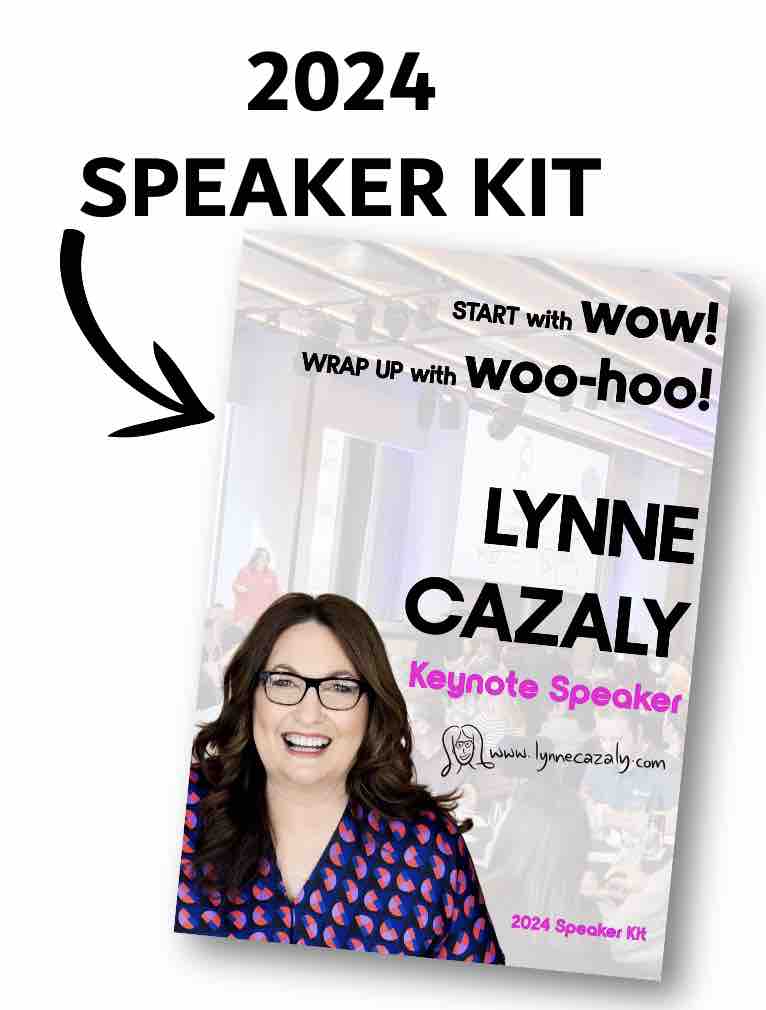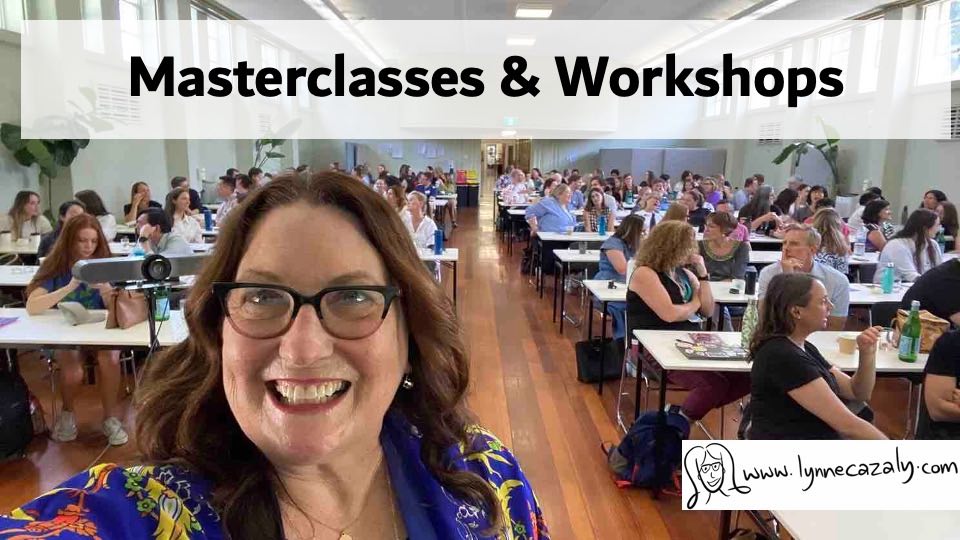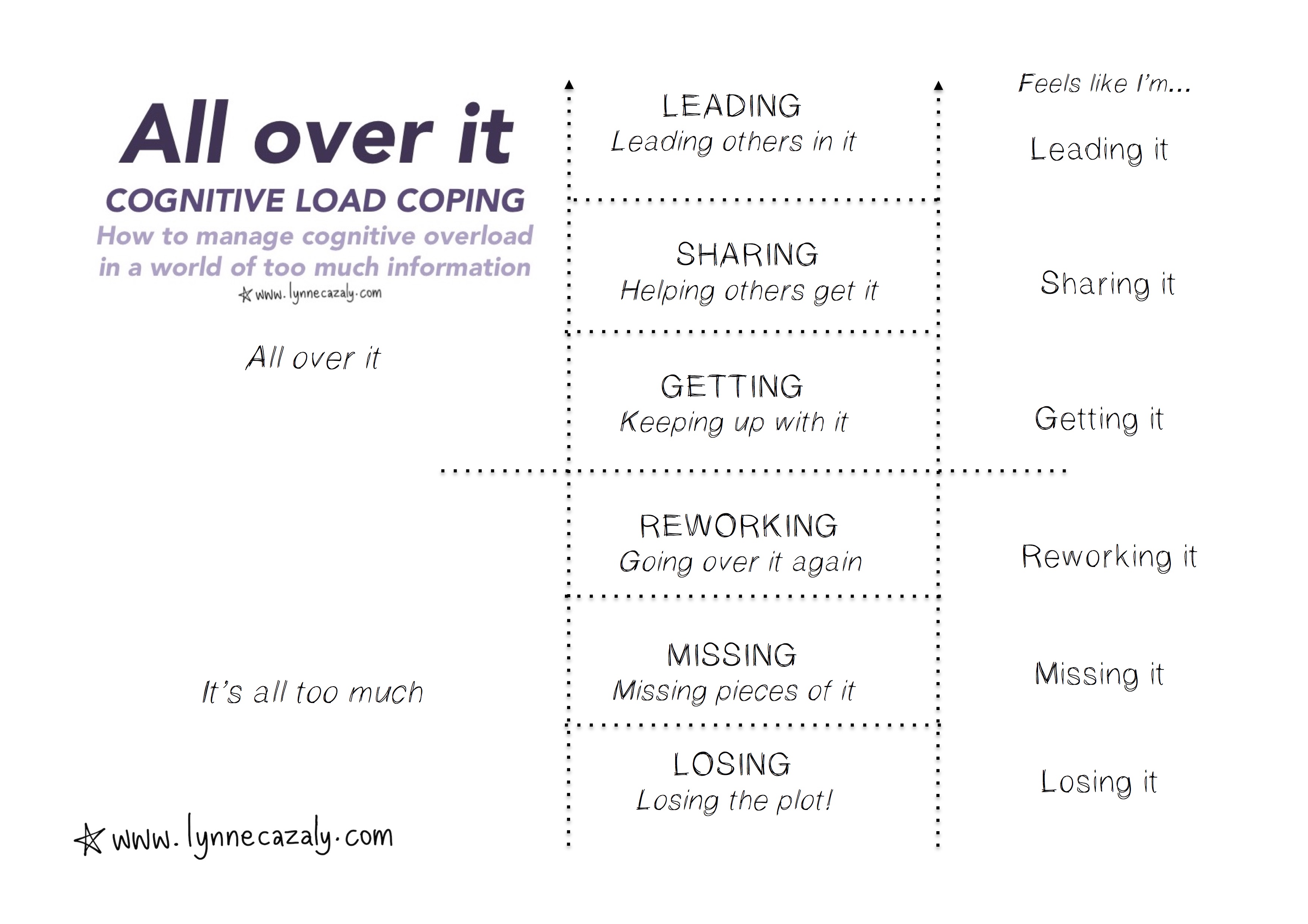Full to overflowing
 Tuesday, September 3, 2019 at 7:29AM
Tuesday, September 3, 2019 at 7:29AM  This morning I'm keynoting aand opening a conference. It’s a 2-day program, with 3 streams running concurrently, which means there will be about 30 sessions for people to choose from.
This morning I'm keynoting aand opening a conference. It’s a 2-day program, with 3 streams running concurrently, which means there will be about 30 sessions for people to choose from.
Many conferences present us with this choice about what to do, what to attend. As delegates, we're about to be blasted by a firehose of information. The information flow is never ending.
We start the day with high hopes, clear minds and open eyes, ready to capture the insights from presentations and conversations.
But during the day, we hit the wall, full to overflowing and we experience 'the overload'.
To deal with it, we need to manage it. No one will do it for us. We need the skill of 'cognitive load coping' which the Institute for the Future said we'd need about now.
Yet I don’t see enough of it in the workplace to equip people to cope with all the information!
In today’s keynote I :
✅ Show how multitasking at a conference lowers our IQ;
✅ Explain we have a blindness to information, missing key content; and
✅ Share templates and techniques for better cognitive load coping.
This quote below from Seth Godin is a goodie! More on this topic as the week goes on.


















